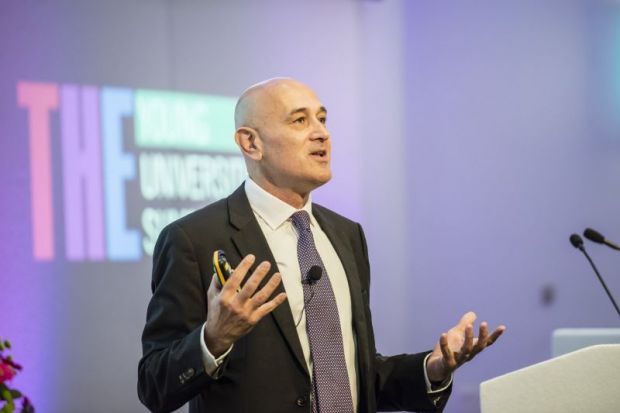Universities must provide more opportunities for academics to engage with the public or risk allowing pseudoscience to “fill the vacuum”, according to Jim Al-Khalili.
Professor Al-Khalili, professor of theoretical physics and chair in the public engagement in science at the University of Surrey, said that outreach should not be seen as an “extra thing” that scholars should “try to fit in around academic duties of teaching, research and administration”.
“Not everyone has to engage in wider society…but it is important that those in academia who are able or willing or enthusiastic about communicating what they do to wider society [are] given every opportunity and freedom to do so by their institution,” he told Times Higher Education’s Young Universities Summit, which was hosted by Surrey.
Professor Al-Khalili said that the goal should be to have the wider public talking about science in everyday conversations, in the way they would about the arts, politics or sport.
He cited now-debunked claims of a link between the MMR vaccine and autism, which were first suggested in the early 1990s, as an example of an issue that medical and health experts now regret not having spoken up about.
“They just didn’t want to engage; [they thought] ‘This is not credible research, we don’t want to talk about it.’ Of course that vacuum was then filled with pseudoscience and all sorts of nonsense, and it’s coming back to bite us,” he said.
However, Professor Al-Khalili said that scholars have “learned that lesson”, as evidenced by their engagement on issues such as nuclear power and climate change, adding that “the UK is probably a decade ahead of the rest of the world in public engagement in science”.
He listed 10 reasons for the transformation in science communication in the UK over the past 25 years, which included learning from the mistakes of the past, the boom in popular science books, the research excellence framework, and the esteem of academics in the UK.
Professor Al-Khalili said he recognised that academics were “nervous about stepping into such an environment” where views were polarised, and admitted that there were “certain topics that I will not get involved in” on Twitter “because I don’t want the hassle of people sending me abuse”.
“But to some extent you do have to stand up and you do have to bang on about evidence and rationalism, because if we don’t, we will make the same mistakes of the past where the vacuum will be filled with people talking pseudoscience or nonsense,” he said.





